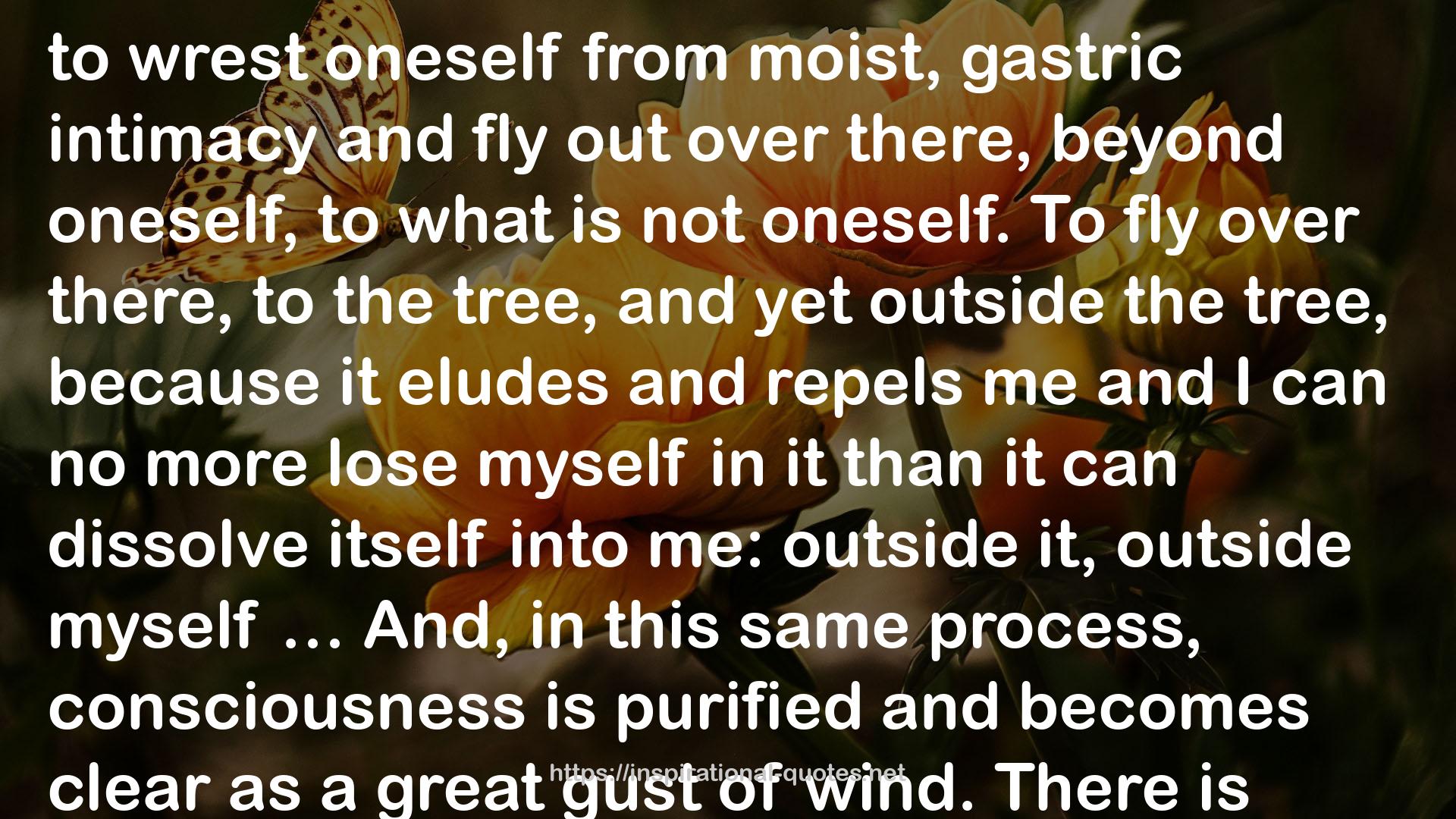" to wrest oneself from moist, gastric intimacy and fly out over there, beyond oneself, to what is not oneself. To fly over there, to the tree, and yet outside the tree, because it eludes and repels me and I can no more lose myself in it than it can dissolve itself into me: outside it, outside myself … And, in this same process, consciousness is purified and becomes clear as a great gust of wind. There is nothing in it any more, except an impulse to flee itself, a sliding outside itself. If, impossibly, you were to ‘enter’ a consciousness, you would be picked up by a whirlwind and thrown back outside to where the tree is and all the dust, for consciousness has no ‘inside’. It is merely the exterior of itself and it is this absolute flight, this refusal to be substance, that constitute it as a consciousness. Imagine now a linked series of bursts that wrest us from ourselves, that do not even leave an ‘ourself’ the time to form behind them, but rather hurl us out beyond them into the dry dust of the world, on to the rough earth, among things. Imagine we are thrown out in this way, abandoned by our very natures in an indifferent, hostile, resistant world. If you do so, you will have grasped the profound meaning of the discovery Husserl expresses in this famous phrase: ‘All consciousness is consciousness of something. "
― Sarah Bakewell , At the Existentialist Café: Freedom, Being, and Apricot Cocktails
